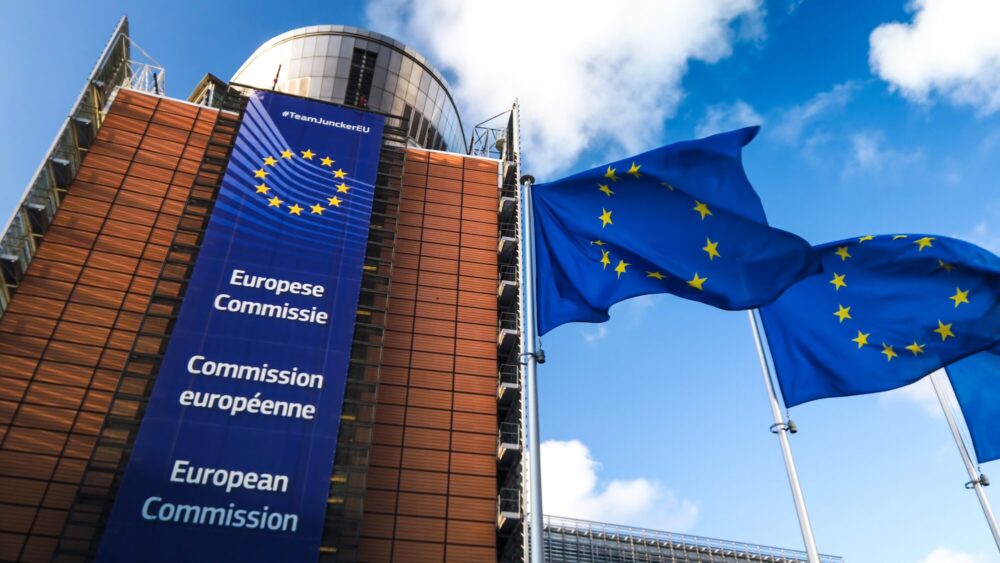
Credit: symbiot / Shutterstock.com
The European Commission violated the EU’s own data protection act in order to garner support for its ‘Chat Control’ bill, claims citizen advocacy group None Of Your Business (NOYB).
The group filed a complaint earlier this week against the EU Commission’s Directorate General for Migration and Home Affairs for allegedly using unlawful micro-targeted ads on the social media platform X (formerly Twitter) to promote the ‘Chat Control’ regulation. The complaint has been lodged by NOYB on behalf of a Dutch citizen with the European Data Protection Supervisor (EDPS).
‘Chat Control,’ which was ostensibly directed at stopping online child pornography, had already raised concerns because the proposed regulation included what amounted to mass surveillance of all chats, texts, and emails, including end-to-end encrypted ones. A watered-down version of the bill was passed by Parliament in late October, a day after MEPs also scrutinized Home Affairs Commissioner Ylva Johansson about her role in the apparent conflict of interest and unethical conduct scandal related to the file.
“While online advertising isn’t illegal per se, the EU Commission targeted users based on their political views and religious beliefs,” NOYB said in a statement. “The ads were only shown to people who weren’t interested in keywords like #Qatargate, Brexit, Marine Le Pen, Alternativ für Deutschland, VOX, Christian, Christian-phobia or Giorgia Meloni.”
Such targeting requires using personal data mined online, a practice that, NOYB points out, the EU Commission has described as “a serious threat to a fair, democratic electoral process.”
The Dutch complainant at the heart of the case also alleges that social media posts claiming 95% of Dutch people think the detection of child abuse is more important or as important as their right to online privacy are misleading. The complaints cite media reports that allegedly show the statistics are based solely on opinion polls conducted by the EU Commission which failed “to mention the negative effects of a chat control mechanism to participants.” According to NOYB, even X flagged the claim as misleading.
The Commission drifted into objectively illegal actions, according to the complaint, by using political opinions and religious beliefs to target ads. Such data is specifically protected from being used in marketing campaigns by EU’s own GDPR laws.
“The EDPS is the supervisory authority for the EU Commission and has the power to impose specific restrictions and/or a fine. As a first step, we request the EDPS to fully investigate the matter in accordance with the EU GDPR,” Mickey Manakas, spokesman for NOYB, told The European Conservative.
The organization is also currently assessing whether to lodge a complaint against X for enabling the illegal use of sensitive data for political micro-targeting.
NOYB noted that even X prohibits the use of data about political affiliation and religious beliefs to target advertisements. The campaign reached at least several hundred thousand Dutch X users, according to NOYB.
“It appears that the EU Commission has tried to influence public opinion in countries such as the Netherlands in order to undermine the position of the national government in the EU Council. Such behavior—especially in combination with illegal micro-targeting—is a serious threat to the EU legislative process and completely contradicts the Commission’s intention to make political advertising more transparent,” the organization said.
NOYB also said that it believes the Commission should be fined.
“The use of political micro-targeting is always problematic, no matter who it’s aimed at or who initiates it. As stated in our press release, the use of sensitive data, such as political opinions and religious beliefs, are specifically protected by the EU GDPR and therefore can’t legally be used for political micro-targeting,” Manakas said.
